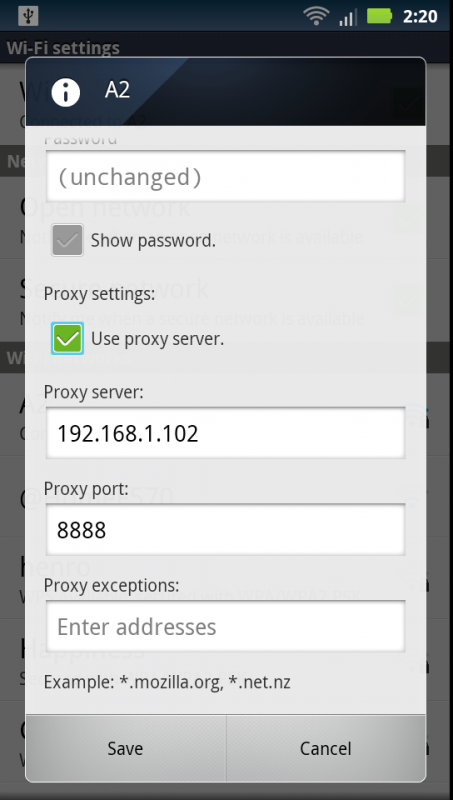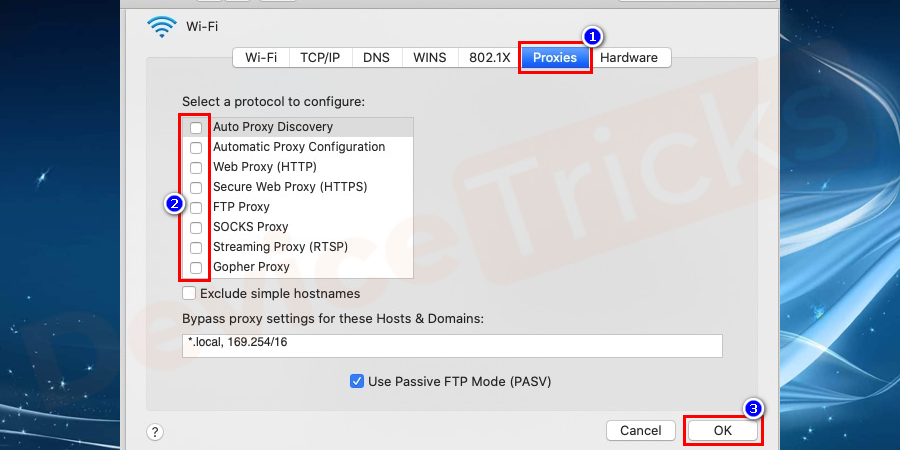

The -global and see all current config: git config -get-regexp http.* If you are in a locally cloned repository folder then you drop To show the current configuration of all http sections git config -global -get-regexp http.* Which will result in the following in the ~/.gitconfig file: The http.sslVerify notation: git config -global http. If you choose to make it global then limit it to a URL using Notice the absence of the -global git config http.sslVerify false

Once cloned, you may decide set this for just this cloned
#How to reset your proxy settings mac verification
You may decide to switch off SSL verification for the single operationīy using the -c http.sslVerify=false option git -c http.sslVerify=false clone If you're still having trouble cloning or fetching and are now gettingĪn unable to access ' Unknown SSL protocol error in connection to. will result in the following in the ~/.gitconfig file: Using http.key notation: git config -global http. Some URLs that specify the URL as a git config subsection If you wish to specify that a proxy should be used for just

Setting a global proxyĬonfigure a global proxy if all access to all repos require this proxy git config -global http.proxy specific proxy You can configure these globally in your user ~/.gitconfig file using the -global switch, or local to a repository in its. Sections if you're having HTTPS/SSL issues See also the git-config documentation, especially the following Root CA that they are applying to the certificate chainĪnd specify it with either http.sslCAInfo or http.sslCAPath. Setting http.sslVerify to false may help you quickly get going if your workplaceĮmploys man-in-the-middle HTTPS proxying. Like unable to access '.' Couldn't resolve host '.'.Ĭonsider something like: git config -global http.proxy for a specific domain, something like: git config -global http. Or fetching from a remote repository or getting an error You may need to configure a proxy server if you're having trouble cloning


 0 kommentar(er)
0 kommentar(er)
